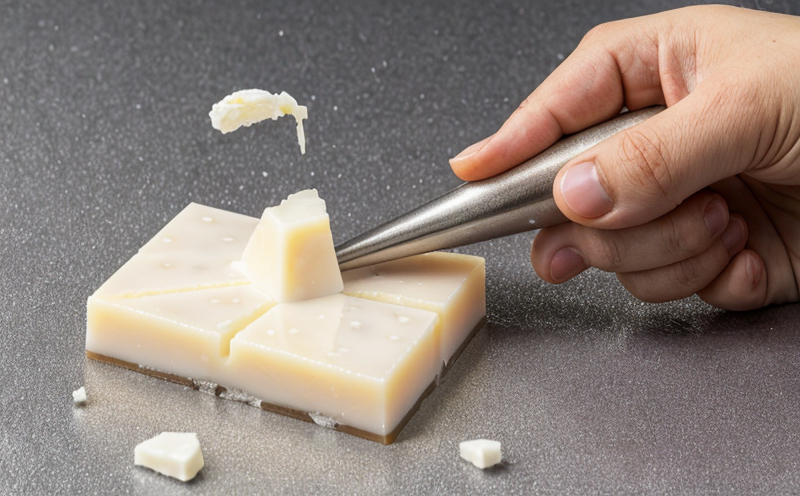Determining fracture toughness of brittle materials
Unlocking Material Resilience Determining Fracture Toughness of Brittle Materials with Eurolab
In the world of materials science and engineering, understanding the properties of materials is crucial for developing reliable and durable products that can withstand various environmental conditions and loads. One essential property that often gets overlooked is fracture toughness a critical measure of a materials ability to resist crack growth and propagation under stress. Brittle materials, in particular, are prone to sudden and catastrophic failures when subjected to impact or stress concentrations, which can lead to costly equipment damage, downtime, and even safety risks.
Determining fracture toughness of brittle materials is an indispensable laboratory service that Eurolab offers to businesses seeking to optimize their product designs and ensure compliance with industry standards. By understanding the fracture toughness of their materials, companies can make informed decisions about material selection, design modifications, and quality control measures, ultimately reducing the risk of unexpected failures and improving overall product reliability.
The Importance of Fracture Toughness in Material Selection
Fracture toughness is a critical property that affects various aspects of material behavior, including
Resistance to crack propagation Materials with high fracture toughness can withstand significant loads without failing catastrophically.
Impact resistance Understanding fracture toughness helps designers mitigate the risk of impact-related failures.
Fatigue life Fracture toughness influences a materials ability to resist fatigue damage and crack growth under cyclic loading.
Companies that neglect to consider fracture toughness may face
Costly repairs or replacements Equipment downtime and repair costs can be substantial when brittle materials fail unexpectedly.
Safety risks Catastrophic failures can lead to injuries, fatalities, and reputational damage.
Compliance issues Failure to meet industry standards and regulations can result in fines, penalties, and even business closure.
Advantages of Determining Fracture Toughness with Eurolab
By partnering with Eurolab for fracture toughness testing, businesses can benefit from
Accurate material characterization Our state-of-the-art laboratory equipment and expert analysts ensure precise measurements of a materials fracture toughness.
Comprehensive data analysis We provide in-depth reports that include statistical analysis, data visualization, and recommendations for improving material performance.
Cost-effective solutions By identifying potential weaknesses early on, companies can make informed design modifications to reduce the risk of catastrophic failures.
Key Benefits of Determining Fracture Toughness with Eurolab
Enhanced product reliability Understanding fracture toughness helps designers create more robust and durable products that meet customer expectations.
Reduced maintenance costs By identifying potential weaknesses, companies can schedule regular maintenance and repair to minimize equipment downtime.
Improved safety records Complying with industry standards and regulations reduces the risk of accidents, injuries, and fatalities.
Frequently Asked Questions (FAQs)
Q What types of materials require fracture toughness testing?
A Brittle materials such as ceramics, glass, concrete, and certain polymers are prone to catastrophic failures when subjected to impact or stress concentrations. Our laboratory services cater to a wide range of industries, including aerospace, automotive, construction, and more.
Q How do you determine fracture toughness in brittle materials?
A We employ various testing methods, including notched bar impact testing (NBIT), flexural strength testing, and single-edge-notched bending (SENB). Our expert analysts will recommend the most suitable test method based on your specific material requirements.
Q What are the typical results of a fracture toughness test?
A Our comprehensive reports provide detailed information about a materials
Fracture toughness (KIC) value
Critical stress intensity factor (Kc)
Fracture strain and energy release rate
Recommendations for improving material performance
Q Can I request specific testing protocols or methodologies?
A Yes. We offer customized testing protocols to cater to your unique requirements. Our analysts will work closely with you to develop a tailored testing plan that meets your industry standards and compliance needs.
Conclusion
Determining fracture toughness of brittle materials is an essential laboratory service that Eurolab provides to businesses seeking to optimize their product designs, ensure compliance, and reduce the risk of unexpected failures. By understanding the importance of fracture toughness and partnering with our experts, companies can unlock material resilience, improve safety records, and enhance overall product reliability.
Get in touch with us today to discuss your specific testing requirements and schedule a project with Eurolabs team of experienced analysts. Together, we can help you unlock the full potential of your materials and products.




